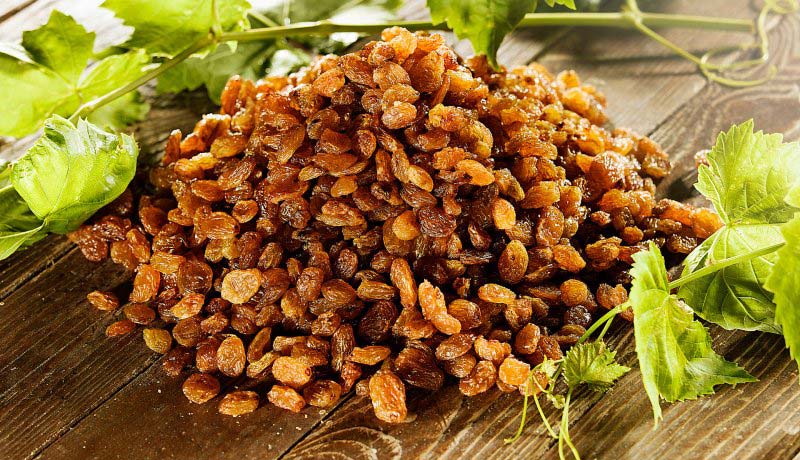
TURKEY
The past week has seen an increase in the price of Turkish sultanas as local packers struggle to find raw material. Prices have been stable for several months, but following the global shortage of raisins have now started to increase. As an indication good quality standard No. 9 sultanas are being quoted between USD 1750-1850 pmt FOB izmir. This is a significant increase and the feeling from both UK importers and major Turkish packers is that prices will rise further. In reality there should be ample stocks of raw material to meet export requirements, but as is often the case with any major commodity, markets can be effected by other factors, such as the uncertainty of a smaller new crop.
Unsold stocks of Turkish raisins are now virtually non-existent, although some packers continue to offer type No.7 and type No. 8 sultanas, which are darker in colour as a substitute. These should be less expensive than the genuine alternative, but prices have been creeping upwards as available stocks of genuine raisins are nearly exhausted. As an indication, genuine Turkish Thompsons seedless raisins are available between USD 2200-2300 pmt FOB izmir with the less expensive alternative at a discount of USD 400-500 pmt on this figure.
The good news as reported last week is that South Africa and hopefully Chile are both expected to have good new crops of raisins this year. The southern hemisphere harvest takes place from March onwards with first shipments at the end of the month or early April. Prices are expected to open at high levels with first indications from South Africa for choice Thompson raisins at between USD 2150-2250 pmt CIF Felixstowe.
Californian raisin prices remain high at between USD 1.50-1.60 per lb C&F Felixstowe. This year the quality is not expected to be as good as last year, due to the difficulties caused by rain at harvest time. Some UK buyers however continue to purchase US raisins as a premium product and sales may increase in the short term if available stocks from other origins such as Turkey begin to run out.
SOUTH AFRICA
Early reports from South Africa suggests that this year’s vine fruit crop will be between 50,000-65,000 tonnes. The harvest is reported to be about one month away and weather conditions have so far been good.
A late frost did reduce the vine fruit crop in some areas and the berry weight might be lower than last year, resulting in a slightly smaller tonnage. The good news is that the earlier drought in South Africa has had no real effect on the size of the vine fruit crop grown in the Upington area due to good rainfall around the Orange River.
Most of the vines for the South African dried fruit industry lie alongside the Orange River, which irrigates the vines in the same way as the Murray River does for the Australian growing area around Mildura. The situation north of Cape Town, however, is likely to be more difficult as most of the farmers there will have much shorter crops following the drought. This might reduce the overall size of this year’s South African currant crop which is unfortunate news for the UK dried fruit industry, which is struggling to obtain supplies from Greece.
As reported previously, unsold stocks of Greek currants on the UK market are now very limited and there are still very few, if any, new offers of Greek currants for shipment. Spot prices have therefore increased to between GBP2,200-2,400 (USD2,970-3,240) per tonne for good quality provincial fruit.
DRIED FRUIT
Turkish apricot prices have stabilised following earlier price increases. In theory there is more than sufficient fruit to cover forward sales until the harvest in August, the total crop is estimated to be 142,460 tonnes but as ever is the case, local farmers remain cautious awaiting possible frost damage in the orchards in March/April. As an indication good quality whole pitted type No. 4 apricots are being quoted between USD 3600-3750 pmt FOB Mersin, Turkey.
Turkish fig prices are also unchanged over the past week with good quality type No.6 natural and Lerida figs quoted between USD 5000-5250 pmt FOB izmir. Ordinarily prices would have reduced after the seasonal December peak in demand, but this year due to increased sales to new markets, prices have remained firm. Local exporters do not expect prices to reduce before a new crop becomes available next September and prices could increase as Ramadan approaches and local demand rises.

